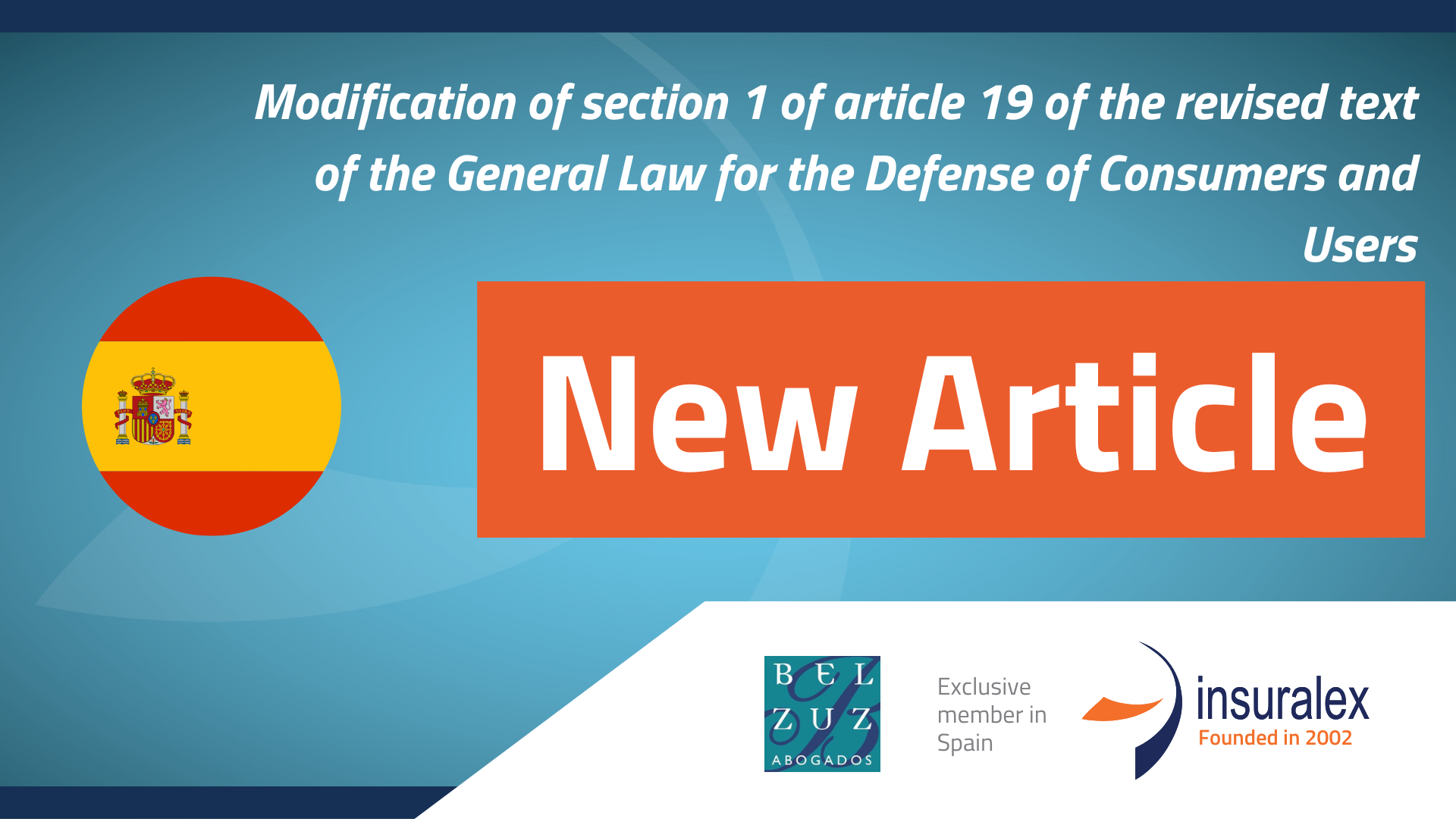
The issue we are facing is of important importance for entrepreneurs and financial institutions, since, with the reform introduced, the content and effects provided for in Article 20 of the Insurance Contract Law are literally incorporated into this sector, which translates into imposing default interest on entrepreneurs and financial institutions that do not contribute to a consensual solution.
This issue is also included in the preamble of Law 1/2025 on Measures in the Matter of Efficiency of the Public Sector of Justice, where it is indicated that the provisions for the delay of insurers in the payment of compensation are copied, imposing ex officio an interest much higher than the legal interest of money.
The clearest example is in those cases in which the dispute over unfair terms is more than resolved in court but the consumer is forced to file a lawsuit to find a solution.
The new wording of paragraph 1 of Article 19 will apply specifically to the following cases:
The new wording and its consequences will apply to proceedings where actions are brought at the request of consumers and users, in cases in which the entrepreneur does not contribute with a consensual solution to resolve a dispute that is based on a clause of the same meaning as another already and declared null and void as unfair by the jurisprudence of the Supreme Court. or by a final judgment that is registered in the Register of General Contracting Conditions or by a judgment of the Court of Justice of the European Union that has already ruled on the matter.
In terms of insurance, article 3 of the LCS already includes a similar situation, which obliges insurers to modify their clauses in the policy when the SC has declared the nullity of a clause.
The consideration of compensatory interest makes its condition clear, which is reinforced by the fact that it will be imposed ex officio, without having to be requested by the plaintiff in the petition, moving away from that line of judgments inclined towards the need for said interest of article 20 LCs to be expressly requested in the petition.
As established in article 20 LCS, its application is staggered in sections, highlighting two levels:
A first tranche where the legal interest of the money in force at the time of application is applied, increased by 50% and a second tranche once two years have elapsed since the conviction or the restitution of the amounts, the interest will not be inferred at 20%.
Like paragraph 8 of article 20 LCs, the new regulation of article 19 LCu in its new wording, establishes a cause for exoneration, which takes place when the lack of restitution due by the entrepreneur to consumers and users is based on a justified cause or that is not attributable to him.
Continuing in the analysis of the new wording of article 19 LCu, it indicates that the provisions of article 1108 of the CC and the provisions of article 576 of the LEC are not applicable. Both types of interest cannot be applied at the same time when they are punitive interests.
This section has to be reviewed, and will pose problems since, as we have already indicated, the current wording qualifies as compensatory interest and therefore this limitation on duplicity would be applicable to it because it is not punitive.
Finally, I would like to point out an issue that penalises entrepreneurs and insurers both in the business and consumer spheres and in the insurance sector.
The new Law 1/2025 establishes as a procedural requirement the prior attempt of agreement by the parties in litigation, thereby interrupting the statute of limitations until this procedure is completed, and not being able to move forward with a lawsuit until this procedure has been completed, but this does not interrupt the period provided for in article 20 LCS or in the current article 19 LCu, which means an added penalty for insurers and entrepreneurs.
The modification introduced in article 19 LCu by Law 1/2025 on Measures in the Matter of Efficiency of the Public Justice Sector entails significant economic consequences for the financial and business sector, a situation that the insurance sector has already been suffering for years when article 20LCs was modified.
The attempt at prior agreement as a requirement for prejudicial proceedings worsens the situation, since the time elapsed during the period of attempted agreement is added to the deadlines provided for in article 20 LCS and the current article 19 LCu, when it is reasonable that during this period of time in which the parties are trying to bring their positions closer together, The deadlines provided for should be suspended until the end of the procedure. In reality, it is only suspended for the plaintiff, but not for the insurer and now also for the employer.
From the insurance department of Belzuz Abogados SLP, as specialists in insurance matters, we remain at your disposal for any questions you may have.
José Garzón García
Socio -Departamento de Seguros
España y Portugal
BELZUZ ABOGADOS SLP, Insuralex´s Exclusive Member in Spain and Portugal



